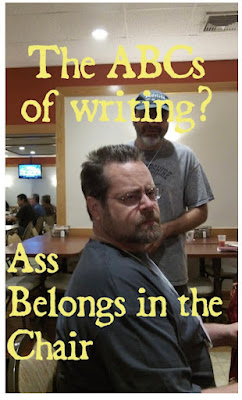This week at the SFF Seven, we're talking about the top tricks in our given writing programs.
I don't use a fancy "writing program." I use Word, which I begrudgingly moved to when WordPerfect was murdered. It works great for me. No bells and whistles. I write linearly from beginning to end and don't need extra functions to annotate or move scenes around. Cut and paste works great for this simple gal. I do modify Word to show me the ongoing word count in the lower left corner, but otherwise, I don't have a lot of tricks.
EXCEPT...
This is my top #protip for using Word. It's been the best discovery ever and has saved me loads of time and headaches. Ready?
Use the in-program dictionary to autocorrect your weird fantasy words.
Seriously, smartest thing I ever did.
For example, in my Twelve Kingdoms world, there is the sailing ship named the Hákyrling. I can never remember how I spelled it (major fantasy-writer peril), nor where I put the stupid accent mark. (WHY DID I USE AN ACCENT MARK??? It's not necessary. It just makes everything more difficult. Anyway...) So, I added Hákyrling to the dictionary - which is easy, right click on the word and choose "Add to Dictionary" - and then I went into the autocorrect options and added that if I type "kyr" Word autocorrects it to Hákyrling. With italicized formatting. Boom. Done. That easy.
I have done this for many of my more complex/obscure fantasy names and words. The trick is to pick a shortcut that 1) you can easily remember, and 2) you don't otherwise type.
Go forth and use this trick, young fantasy writers!













